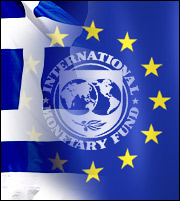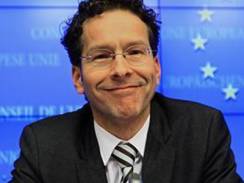A Greek exit from the euro zone could “discombobulate” currencies and open the door for contagion to other heavily indebted nations, bond investor Bill Gross said Wednesday.
The cash-strapped European nation’s struggles matter despite markets’ perceived resistance to its ongoing debt negotiations, Gross contended. He noted that if Greece left the euro zone, it would only lead to speculation swirling around Portugal, Spain or Italy.
“I think it matters because markets interpret events on a forward basis,” said Gross, manager of the Janus Global Unconstrained Fund.
Earlier Wednesday, Gross outlined what he believes is an “excess” of monetary policy intervention that opened the door for his call on shorting German Bunds last month. In a report to clients, Gross said his short against the Bund was well timed but “not necessarily well executed.” Last month, he tweeted that German 10-year Bunds made “the short of a lifetime.”
Bund yields fell following the European Central Bank’s purchase of public sector bonds in March as part of a trillion-euro stimulus program. After touching 0.049 percent on April 17, yields on the 10-Year Bund have risen significantly as prices fell. Yields climbed to about 0.56 percent by Wednesday afternoon.
On “Power Lunch,” he noted that the trade lacked execution because others may have shorted German Bunds before he did himself.
In a note Wednesday, he said his bet against Bunds “was a prime example of opportunities hatched by the excess of global monetary policy—zero based policy rates and tag team match quantitative easing programs which continue to encourage malinvestment in financial assets as opposed to the real economy.”
Gross’s Janus Global Unconstrained portfolio is down 0.40 percent this year, underperforming its peers by 1.88 percentage points and lagging 93 percent of its nontraditional bond category, according to Morningstar data as of Tuesday.


















